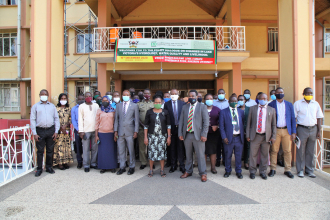Households’ Perceptions of “Reasonable” Water Bills in Ho Chi Minh City, Vietnam
A survey of 2075 households was conducted in Ho Chi Minh City, Vietnam in 2019 to estimate what respondents thought a “reasonable” monthly water bill would be for a randomly-assigned monthly quantity of water. Two different elicitation procedures were used to estimate respondents’ reasonable water bills. First, 830 respondents were asked two open-ended questions: (i) to state a water bill that they considered reasonable for the exogenously-assigned monthly quantity of water, and (ii) to state a reasonable water bill for their current water use.



